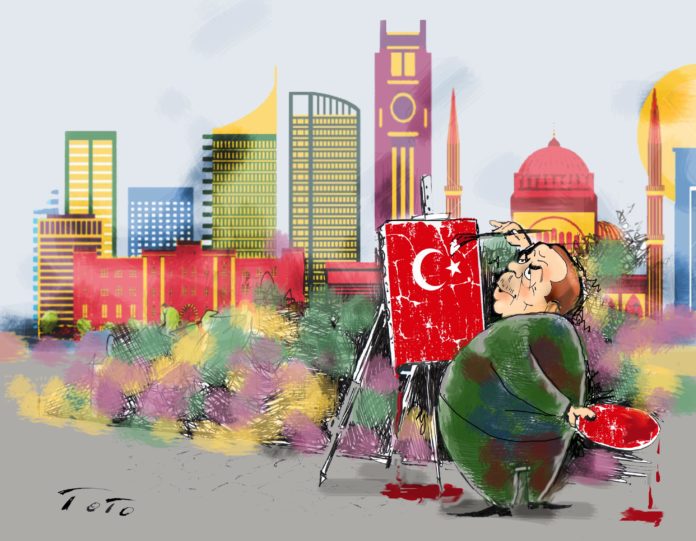While Armenia is concerned with Turkish expansion in the Caucasus through its regional satellite, Azerbaijan, and the Europeans are alarmed by Turkey’s mischief in Greek and Cypriot waters, Ankara is extending its tentacles to Lebanon, where a thriving Armenian community has existed for almost a full century.
Armenians found a safe haven in Lebanon after the Genocide and through the network of schools, churches, cultural centers, newspapers and sports groups, developed a fully-realized community, which also enhanced its political clout, landing Armenians in state leadership posts.
The Lebanese Armenians have also exported their cultural and educational strength to other Armenian communities in Western countries.
Now, all that is coming to a grinding halt, first because of the destruction of that once-prosperous country and also because of the ominous shadow that Turkey is casting.
To demonstrate how political life has changed in Lebanon, it is sufficient to remember that in earlier years, when the Armenians commemorated the anniversary of the Genocide every April 24, the entire country joined them, shutting down businesses and government offices.
Earlier this summer, however, when an Armenian television anchor, Neshan Der Haroutiounian, criticized President Recep Tayyip Erdogan’s nefarious policies in the region, he landed in a courtroom. Even more ominously, immediately after making his comments, his television station offices were surrounded by an angry throng waving Turkish flags and threatening Armenians. They called themselves Mardillis and pledged allegiance to Turkey.








